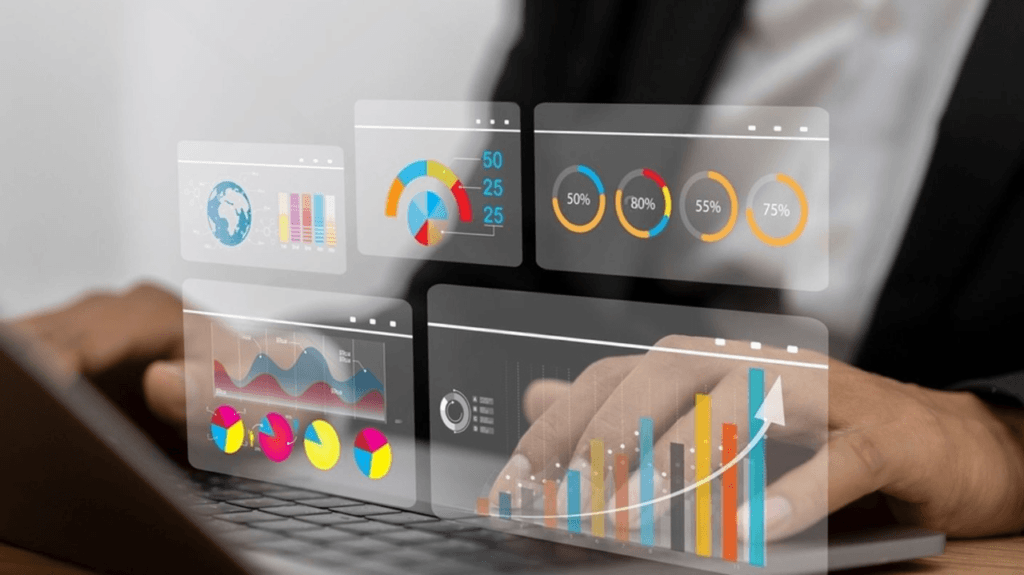
Crafting a Data-Driven Marketing Strategy: Why Analytics Matter in 2025
Modern marketing practices require being smarter, more personalized, and incredibly efficient. In the fast-evolving digital landscape of today, businesses will stop at nothing to reach their audiences more meaningfully. Data-driven marketing has, therefore, become more important than ever. With 2025 coming, the use of data analytics in marketing has proved to be more of a need for brands to remain competitive while delivering the best possible results. The power of data can be used to fine-tune marketing efforts, which will eventually help increase the return on investment and build relationships that last in the minds of customers.
The Rise of Data-Driven Marketing
Gone are the days of vague assumptions and speculations in marketing. With advancements in technology, brands can now exploit vast reservoirs of data sources for understanding consumer behavior, preferences, or trends. For example, data analytics in digital marketing allow brands to understand the nature of interaction with them on social media, the volume of traffic on their website, and even subsequent sales metrics, thus assisting in business decision-making, optimizing campaigns, and bettering customer experiences.
Today, companies are collecting, analyzing, and acting on data at a much faster pace in 2025. Using AI, ML, and advanced analytics platforms, marketing teams can make decisions based on real-time insights. Ultimately, as marketing analytics becomes an integral part of business strategies, companies will be able to grasp their customers’ needs better and deliver campaigns that speak directly to the customers. We at The Virtual Salt specialize in using these marketing analytics to help businesses craft the precise marketing strategies that lead to real growth.
Why Analytics Matter in 2025
Personalized Customer Experience
The most compelling reason to adopt data-driven marketing is that it provides the means to personalize content and offers at scale. Consumers expect tailored experiences that speak to their exact needs and preferences nowadays. Data analytics in digital marketing helps to understand customer behavior, thus allowing businesses to segment audiences effectively and deliver messaging in a tailored manner.
Be it personalized e-mail marketing campaigns, relevant ads to people’s devices, or website recommendations, businesses that know customer preferences are much more likely to build loyalty and generate conversion. The marketer can adapt his real-time campaigns with real-time data to ensure that customers are offered relevant offers and content.
Optimizing Marketing Spend
The correct distribution of marketing budgets is crucial in such a world with hundreds of millions of channels through which one can advertise: social media, search engines, display ads, and many others. A meaningful way to measure this process is by using data analytics in digital marketing because it allows companies to follow the performance of different channels and campaigns.
Various factors can help businesses determine which channels and tactics will be the most effective, and then redirect their resources toward those strategies generating the greatest ROI, which involves analyzing metrics such as customer acquisition cost, conversion rate, and lifetime value. Such data-driven approaches mean every marketing dollar works harder and smarter. Using the expertise of agencies like The Virtual Salt will enable businesses to make more informed decisions to maximize their marketing budgets.
Predicting Trends and Customer Behavior
Predictive analytics has become a game-changer in the marketing analytics world. By analyzing historical data and customer patterns, businesses can forecast trends and anticipate customer needs. This predictive capability allows brands to stay ahead of the curve, creating campaigns that resonate with future customer demands before they even emerge.
Whether it’s predicting which products will be in high demand, anticipating seasonal shifts in consumer behavior, or identifying emerging trends, data analytics in marketing empowers brands to plan proactively and adjust their marketing strategies to capitalize on future opportunities. For businesses looking to stay ahead, partnering with data-driven agencies like The Virtual Salt can provide valuable insights to forecast and adapt marketing strategies.
Measuring Campaign Effectiveness
Gone are the days of blindly pushing out content and hoping for results. In 2025, every marketing campaign can—and should—be measured for effectiveness. Marketing analytics tools allow businesses to track performance in real time, measuring everything from impressions and click-through rates (CTR) to conversions and customer engagement.
By continuously analyzing the results of campaigns, businesses can pinpoint what works and what doesn’t, enabling them to tweak their strategies on the fly. This level of accountability ensures that marketing efforts are always aligned with the broader business goals, driving more meaningful results.
Enhancing Customer Retention
Acquiring new customers is but one part of the equation; retaining them is as important. Data-driven marketing strategies help brands understand the behavior of existing customers, so loyalty programs and offers are personalized to each customer, and concerns are addressed before they start churning.
Analysis of data, feedback, and engagement regarding the customer journey can provide brands with opportunities to offer a smooth post-purchase experience that will ensure customers return to the brand. The reason why customers return is something from which brands can shape their messaging to keep the most valuable of those audiences.
Key Metrics to Track in 2025
To make the most of data analytics in digital marketing, businesses need to focus on the right metrics. Here are a few key performance indicators (KPIs) that should be at the forefront of any marketing strategy in 2025:
Customer Acquisition Cost (CAC): This refers to how much it costs to acquire a new customer, helping businesses to evaluate whether their marketing efforts are efficient or not.
Conversion Rate: Ratio of users who have performed the action for which a person is, like clicking a purchase button or newsletter signup.
Customer Lifetime Value (CLTV): It is a forecast of what a business could generate from the customer during their lifetime, therefore retaining businesses gain a projection toward the approach they will take.
Return on Investment (ROI): The ROI on the campaign pertains to the idea of maintaining a ratio between how much revenue is generated versus how much has been invested.
Engagement Metrics: These would include likes, shares, comments, as well as time on site, all of which can be highly insightful into how well your content resonates with your audience.
The Future of Data-Driven Marketing
With the advancement in technology, the scope for data-driven marketing is ever brighter. AI and ML will further enhance data analytics, automate the process of making decisions, and allow for hyper-personalized marketing at scale. Even more impactful marketing can be assured with the ability to better predict consumer behavior and adjust strategies on the fly.
Further, the importance of data privacy and data security will decide the way of data collection from the customers by their respective organizations. In 2025 and beyond, marketers will need to balance data analytics in marketing adding such ethical debates carried out in the years ahead.
Conclusion
In 2025, crafting a successful marketing strategy is no longer about intuition or guesswork; it’s about harnessing the power of data analytics in digital marketing to make informed, strategic decisions that drive measurable results. By adopting a data-driven marketing approach, businesses can optimize customer experiences, maximize ROI, predict trends, and fine-tune their marketing efforts for continuous growth. The businesses that master marketing analytics will lead the way into the future of marketing. Partnering with a data-driven agency like The Virtual Salt enables businesses to unlock the full potential of their data and create smarter, more effective marketing strategies. With experts who specialize in leveraging data insights, we ensure that businesses stay ahead of the curve and that every marketing dollar is spent wisely. Let data guide your marketing strategy in 2025 for smarter, more impactful campaigns.

